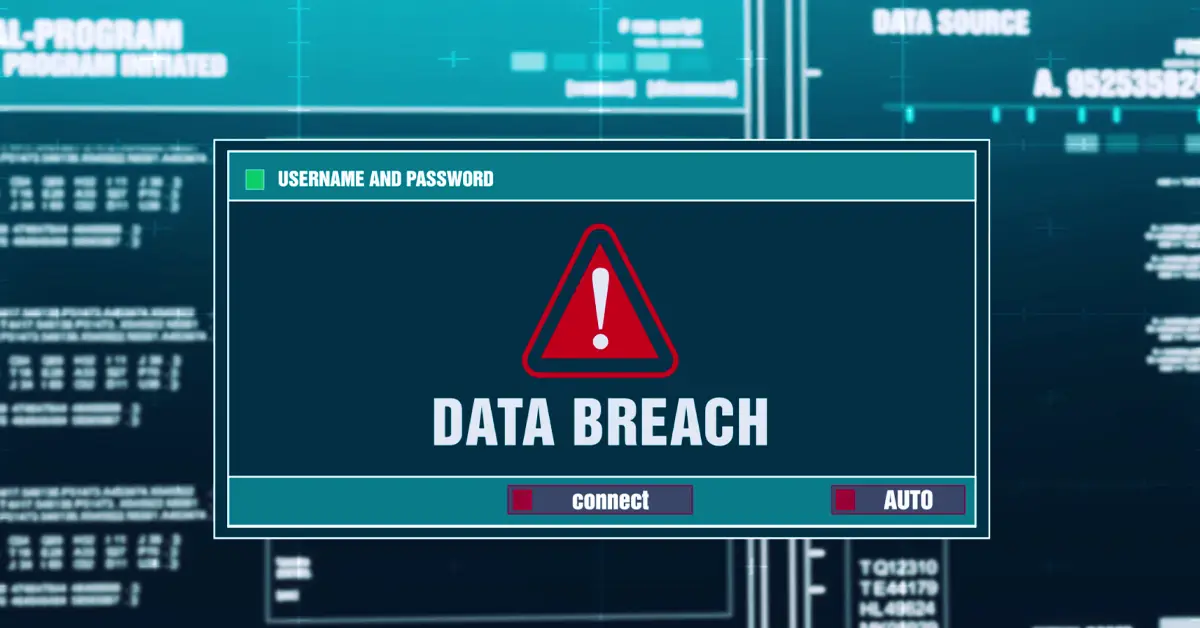According to the HIPAA Journal, during the first half of 2022, there were 347 healthcare data breaches of 500 or more records reported to the Department of Health and Human Services’ Office for Civil Rights (OCR). These healthcare cybersecurity breaches can compromise the confidentiality, integrity, and availability of sensitive patient information, and cannot be accepted.
What follows are some of the most common cybersecurity challenges in healthcare, and practical methods to effectively address them.
What are the Top Cybersecurity Challenges of Healthcare Organizations?
Data breaches
Data breaches can be particularly damaging to healthcare organizations due to the sensitive nature of patient information. The financial and reputational repercussions of a data breach can be significant, and the resulting impact on patient trust and loyalty can be long-lasting.
Healthcare organizations must prioritize cybersecurity and take steps to protect patient data from security risks. Some steps include implementing technical measures — such as encryption and multi-factor authentication — subscribing to new technology, and creating policies to ensure that all staff members understand their role in safeguarding patient data.
Ransomware Infections
According to a recent survey of healthcare organizations, 34% of respondents reported experiencing a ransomware attack in 2021. Of those hit by ransomware last year, 65% said the cybercriminals succeeded in encrypting the healthcare organizations’ data in the most significant type of attack.
It is clear that cyber attackers are increasingly exploiting vulnerable systems to gain access to patient information, which is leading to an increasing number of serious data breaches.
Hospitals and other healthcare organizations must be proactive in protecting their patients’ data by training staff on proper security procedures and investing in strong malware protection. Additionally, healthcare providers should regularly review their systems to identify and address any vulnerability to help ensure that theft of patient data is prevented and, ultimately, confidential patient information is kept secure.
Breaches of Patient Confidentiality
According to the HIPAA Journal, in 2021 there was an average of 1.95 healthcare data breaches involving 500 or more records reported each day. Breaches can often result in unauthorized access to confidential medical records, and threatens a breach of trust between doctors and their patients.
It is essential that health organizations take proactive steps to protect their systems and data from cyber threats; the security of patient information is paramount to providing quality health care.
Theft of Intellectual Property
Theft of intellectual property often involves hackers or other insider threats infiltrating the networks of healthcare organizations and stealing critical information such as trade secrets and patient data.
Healthcare organizations must be vigilant in protecting their data and investing in the latest security measures to ensure that sensitive information is not compromised. Furthermore, healthcare organizations should be aware that hackers are becoming increasingly sophisticated, and many can even access encrypted data. As such, organizations must be hyper-vigilant in monitoring any suspicious activity on their systems.
What can Healthcare Organizations Do to Address These Issues?
Healthcare organizations can take a variety of steps to address these cybersecurity challenges. Some of the most common measures include:
1) Establishing a Comprehensive Cybersecurity Policy
To best protect patient data and other sensitive information, healthcare organizations should establish a comprehensive cybersecurity policy. Cybersecurity policies should include measures such as regularly updating systems and software, restricting access to certain information and using strong passwords to reduce the risk of cyber-attacks.
Additionally, organizations should be aware of the latest security threats and take proactive steps to ensure their data is secure. With a comprehensive cybersecurity policy in place, healthcare organizations can be better equipped to protect their data from malicious actors.
2) Training Employees on Cybersecurity Policies and Procedures
Healthcare organizations must ensure that their employees receive adequate cybersecurity training. Training is especially important given the prevalence of cyberattacks in the healthcare sector. Training should include topics such as best practices for creating and managing passwords, recognizing phishing emails, and avoiding suspicious websites.
Additionally, employees should be informed about the consequences of not adhering to cybersecurity policies and procedures. By training their employees and making sure that they are aware of the risks associated with cyberthreats, healthcare organizations can better protect themselves and the sensitive data they possess.
3) Implementing Robust Security Measures, Such as Firewalls and Intrusion Detection Systems
Healthcare organizations are facing an increasing number of cyber security threats and are taking steps to protect against them. One measure that many healthcare organizations are implementing is the use of robust security measures such as firewalls and intrusion detection systems.
Firewalls provide an important layer of protection by preventing unauthorized access to sensitive data while intrusion detection systems constantly monitor networks for potential threats. Together, these measures can help protect healthcare organizations from cyber-attacks and keep patient information secure.
4) Enforcing Strict Data Governance Policies
Enforcing strict data governance policies is a critical step in addressing cybersecurity issues in healthcare. Data governance policies provide clear guidance on how data should be handled and how it should be securely stored and accessed.
Establishing such guidelines can help prevent unauthorized access of confidential patient information, as well as reduce the risk of potential data breaches. Additionally, implementing these policies can help healthcare organizations stay compliant with relevant regulations and protect the privacy of patients.
5) Taking Steps to Prevent Data Breaches, Such as Encrypting Data
As cyber threats to healthcare organizations continue to increase, data encryption is an important step in preventing data breaches and protecting confidential patient information. Encryption is a process of using mathematical algorithms to scramble data, making it virtually unreadable to anyone without the key to decrypt the data.
It is a critical tool for healthcare providers to secure patient records and prevent unauthorized access. Implementing strong encryption standards and regularly monitoring systems for any suspicious activity are essential steps in protecting sensitive patient data.
Why Information Security is Critical for Healthcare Organizations
Ransomware attacks have become a major concern in the healthcare industry because, in part, they can disrupt patient care and compromise sensitive information such as electronic health records and credit card numbers. Healthcare organizations must also be vigilant against distributed denial of service (DDOS) attacks, which can overwhelm their systems and prevent access to important data.
Protecting patient data and ensuring the security of electronic health records is crucial for the healthcare sector, as a data breach can have serious consequences for both the organization and the individuals whose information is compromised.
The healthcare industry also faces unique cybersecurity challenges, including the need to protect social security numbers and other personal information, in addition to ensuring the continuity of patient care.
Healthcare cybersecurity is a complex and constantly evolving field, as cyber threats to the healthcare sector are becoming increasingly sophisticated. It is essential for healthcare organizations to stay up-to-date on the latest information security best practices in order to protect against today’s advanced cyber threats and safeguard patient information.
DrKumo Provides Secure and Private Connected Health Technology
DrKumo‘s security and privacy framework are based on a number of reputable industry standards and guidelines, including HIPAA, ISO 27001, National Institute of Standards and Technology (NIST), and Federal Information Processing Standards (FIPS). As a leader in connected health technology for remote patient monitoring, DrKumo is committed to maintaining the confidentiality, integrity, and availability of its systems and information, which includes information about customers, employees, clients, and third-party relationships.
DrKumo develops quality systems, applications, and procedures to ensure the security and privacy of this information. Additionally, DrKumo always stays up-to-date with changes in privacy laws and regulations to ensure compliance.
Takeaways
Cybersecurity is an important issue for all organizations, but it is especially important for healthcare organizations. By taking steps to address the most common cybersecurity challenges, healthcare organizations can protect their data and protect the safety of their patients.
Do you want a remote patient monitoring technology solutions provider that is keen on preventing cybersecurity issues in healthcare? Contact DrKumo now.








